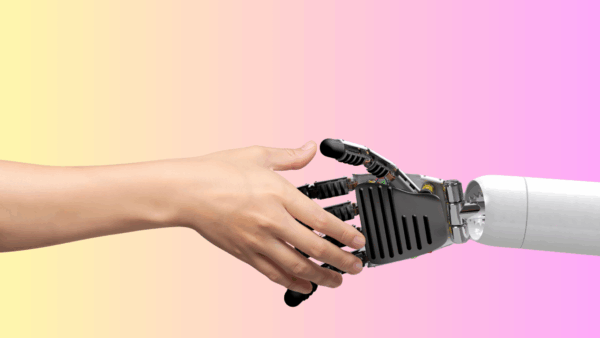
Extroverts in the Office: A How-to Guide for Leaders and Coworkers
You know that person who just has to tell you everything about their weekend while you’re just trying to get a coffee refill at 9 a.m. on a Monday morning? The person with maybe the loudest laugh, who is always trying to strike up a conversation, who would much rather explain something in person than send an email?
Those are the extroverts in your office! And they’re a wonderful addition to any team because they tend to light up a room and are comfortable with expressing off-the-wall ideas in brainstorming sessions. (Not to mention they almost always have a good joke or two up their sleeves.)
Of course, there are some extroverted qualities that may come naturally to an introvert (or that can be learned), and vice versa. Check out what Lifehack has to say about that:
“It’s . . . helpful to think of introversion and extroversion as being somewhat similar to being right or left handed. Most of us will be one or the other, but writing with your right hand doesn’t render your left hand inert. Similarly, an extroverted person can still do things that aren’t typically associated with extroversion. Meanwhile, introverts can learn to adapt to more extroverted scenarios, even if it might not come as naturally.”
But! In this post, I’m talking about the hallmark extrovert qualities and how they play out in the workplace.
If you’re in leadership, this matters because a mismanaged extrovert might come across as lazy or unmotivated. If you’re an introvert, this matters because knowing how to work well with your teammates is kind of the name of the game for peace and harmony around the proverbial water cooler.
And of course, if you’re an extrovert, this matters because #themoreyouknow.
Personally, I’m an ambivert (which means I’m both extroverted and introverted, so yes, I’m basically a unicorn), but the extrovert side of me is pretty loud. Because, well, one of the classic traits of an extrovert is . . .
We’re Pretty Loud.
For my primarily introverted pals out there, let me offer a little bit of insight into why we extroverts are so gosh darn loud!
A lot of us are external processors. So life makes more sense to us once we’ve talked it through with someone else.
Secondly, extroverts are energized by being around other people. And it’s exciting to get energized! If we’re not careful, we can easily get amped and go over the top with our energy — and volume — just by being around other people who are also having a great time.

We’re More Likely to Have Big Personalities.
Big personalities tend to own a room, often without realizing it (we promise we weren’t trying to overtake the conversation; we just got excited). Because life is so much better when you can share the best parts with literally everyone around you!
We just want you to be enjoying today as much as we are! All. The. Time.
Except for when we’re not, which we’ll also make sure you’re also very aware of. Because let’s face it, life isn’t always sunshine and rainbows.
We Can Be Socially Demanding…
Extroverts have high energy, but that can be overwhelming for the more mellow, introverted folks around us. So! It’s incredibly helpful for supervisors to be a pal and help their extroverted employees figure out how to scale back our energy or share it in appropriate settings.
It’s also helpful for introverts to speak up! Don’t be afraid to say, “I’m excited to talk about this with you, but I’m right in the middle of something,” and then give an appropriate time to talk. The biggest win here is that you’re telling your extroverted friend that whatever they’re saying is important, but you’re also respecting yourself and your need to focus on your work.
Because we all do better at work when we’re not overwhelmed, right?

…But That’s Only Because We Love You So Much.
The classic extrovert might be a little more focused on what’s happening with the social environment at the office than on the task at hand.
But that’s great news, because the social environment at your office is a powerful motivational tool for your extroverts!
Check this out advice from the folks over at 15Five:
“Because extroverts sometimes invest energy in more social activities, they may falter at accomplishing goals or taking the time for imaginative reflection and introspection. Managers can create more goal-oriented processes, where incremental progress is measured and the causes of failure or success are explored.”
If you can hone in on the social consequences of failing to meet a goal or expectations, you’re one step closer to a successfully motivated extroverted team member.
So Make It Real for Us.
Supervisors, give your extroverts some concrete consequences if they don’t get their tasks done on time. Then, help them set some doable goals, let them run with it, and praise them when they hit the mark!
When it comes to extroverts, the Undercover Recruiter says:
“One of the best ways to help your extroverts succeed is to praise them when they do, because extroverts are always looking for stimulation from their surrounding environment. . . . Research published in the journal Frontiers in Human Neuroscience found that extroverts weigh external motivational and reward cues more strongly than introverts.”
So, dear extroverts, take consequences seriously and focus on accomplishing your deadlines and goals so that you can score some sweet social equity.
Think about it: if you pull your weight, your boss is happier, your coworkers are happier, and a happier office makes for more fun conversations around that proverbial water cooler!

And Tell Us (Nicely) If We’re in Your Space.
Yes, dearest introverts, I know we extroverts can be overwhelming and way too excited about that thing and always have a story to tell you (that you never asked to hear). But you have to admit that the office is a little brighter with us around, right?
You can help keep everyone happy by building up physical boundaries for yourself. If you feel like your extroverted friend is getting a little too close (because let’s be honest, physical space can be a non-issue with plenty of extroverts), feel free to create a physical barrier even just by holding your cup of coffee in both hands for a minute.
Basically, I’m encouraging you to own your space. You deserve to be in the room just as much as an extrovert does.
And dear extroverts, please ask your coworkers, “Is now a good time?” whenever you need to talk things over in person. Give them the time they need to switch mental gears and gather the “people energy” they need to have a face-to-face conversation.
Remember: an in-person conversation could require more energy from the introvert than the extrovert!
Okay! Let’s All Hold Hands Now!
No, wait, let’s not — my introverted side doesn’t want to touch you.
But that’s kind of the point in all of this, isn’t it? We all require different boundaries in order to work at our best. And the more you know about your coworkers, the better you can work with them.
Even more importantly, you can’t work well with anyone else until you understand what you need to work at your best. Wasn’t it Aristotle who said the beginning of all wisdom is knowing yourself? Well, that’s incredibly true at work.
Extroverts: Wise up, and practice the balancing act of being your bubbly self — while also being productive and respectful!
Introverts: Exercise your smarts, and strengthen your communication skills by speaking up and setting healthy boundaries with your extroverted coworkers.
Supervisors: Get your Yoda on by tuning into the needs of your employees so you can have a happy, healthy work environment.
There you have it! All it takes is some time and effort and you’re on your way to a healthy, balanced work environment.
See What We’re All About »





